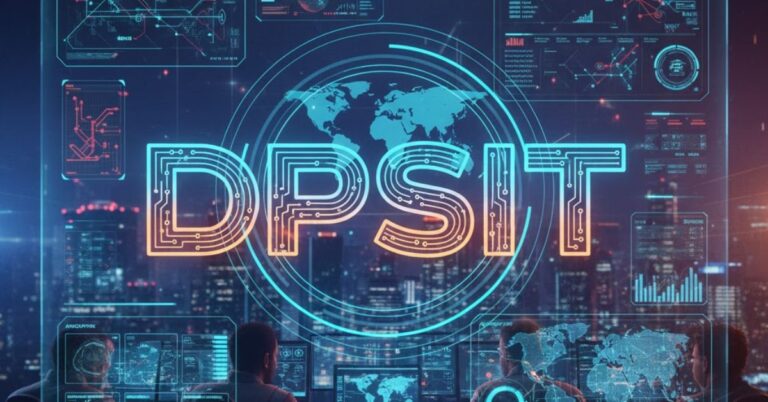Understanding 185.63.263.20 and Its Significance
Many people may be curious about the significance of the string “185.63.263.20” when they first encounter it. An IP address, a building block of the internet, is implicit in this format. Despite its apparent simplicity, an IP address such as 185.63.263.20 has a major impact on our ability to connect to and engage with the digital realm. This essay will delve into its ramifications, explain how it works, and explain why knowing it helps us comprehend how the internet works.
What Is 185.63.263.20?
Devices that link to the internet are given distinct identities called IP addresses. Data packets on the web are directed to their correct destinations via IP addresses, which function similarly to home addresses for physical mail. The IPv4 protocol, which is presently among the most popular internet protocols, is followed by the format of the number 185.63.263.20. The octets, which are segments separated by dots, can hold integers from 0 to 255. With this standard in place, the world’s billions of linked devices will be assigned addresses in a methodical manner.
There are a few possible interpretations of the number 185.63.263.20. It could be associated with a database, a particular node in a network, or the server that hosts a website. Understanding the inner workings of such addresses can provide light on more generalized internet technology.
The Structure of 185.63.263.20
It is necessary to dissect 185.63.263.20 in order to understand its relevance. The 32-bit system, which is divided into four parts called octets, is the basis of IP addresses inside the IPv4 framework. Over four billion distinct addresses are possible since each octet can take on any value between zero and twenty-five, as shown in 185.63.263.20.
These numbers don’t appear at random. Starting with network identification at the front and ending with device-specific identification at the conclusion, each part often represents different layers of data architecture. As an example, a specific regional internet register may be associated with the “185” in the first segment. In order to facilitate effective administration and organization, global registries assign Internet Service Providers (ISPs) certain ranges of numbers.
The Role of IP Addresses Like 185.63.263.20
You need an IP address to do anything online. An example of how the Domain Name System (DNS) works is that it translates domain names like 185.63.263.20 into numerical IP addresses, which are then accessible in web browsers. It is quite unlikely that servers and consumer devices could communicate without IP addresses.
The same is true for businesses; certain IPs are crucial to their operations. For example, in order to guarantee proper data routing, server-hosting providers frequently assign unique IP addresses, such 185.63.263.20. Organizations may better control digital security and monitor internet traffic with the help of these IDs.
Complex networking systems are also supported using IP addresses. Take, for example, a server that is accessible to the public with the IP address 185.63.263.20. To improve performance and dependability for customers, businesses may utilize strategies like load balancing, in which numerous servers share a single IP address.
Understanding Public and Private IPs
The difference between private and public IP addresses is an important consideration when talking about 185.63.263.20. The one being discussed is an example of a public IP address, which is both globally unique and accessible through the internet. Important for exchanging data with other parties, these are assigned by internet service providers.
When it comes to internal networks, such as those in homes or offices, private IP addresses are more appropriate. Designed for communication between local devices only, these are invisible to the rest of the internet. Although your laptop may have a private IP address, in order to communicate with a public web server such as 185.63.263.20, translations are necessary. This is accomplished through the use of Network Address Translation (NAT) technologies.
Tracing and Locating 185.63.263.20
In many cases, the physical location of an IP address can be used to determine its hosting provider. Instead of a specific user, the results for 185.63.263.20 usually match to the data center or area linked with the server. In order to offer these insights, services such as IP geolocation use databases that include extensive records of IP address assignments.
Keep in mind that IP address-based location tracing doesn’t necessarily provide pinpoint accuracy. An example of a proxy server or virtual private network (VPN) is 185.63.263.20; this demonstrates the trade-off between user privacy and the usefulness of the internet.
Security Considerations for 185.63.263.20
There are significant security risks with IP addresses such as 185.63.263.20. Criminals online frequently launch Distributed Denial of Service (DDoS) assaults and other harmful operations by taking advantage of weak IP addresses. An IP address like 185.63.263.20, for instance, could be the target of a deluge of malicious traffic that eventually causes the server to fail.
This is why network security is so important for people and companies. Protecting public IP addresses requires the deployment of intrusion detection systems, firewalls, and thorough cybersecurity measures. The security of data and the continuity of operations are guaranteed by routinely monitoring IPs like 185.63.263.20 for digital threats.
Additionally, companies should routinely check their IP address logs for any suspicious activities. It is possible for an IP address to be targeted by bad actors if it exhibits fraudulent behavior, such as illegal login attempts.
The Transition from IPv4 to IPv6
Despite IPv4’s continued dominance, its allocation constraints have led to the introduction of IPv6. The increasing number of devices that need internet connectivity can be handled by IPv6, thanks to its larger address pool. While IPv6 is being phased in, addresses such as 185.63.263.20, which use IPv4, are still very much part of the web’s present infrastructure.
Maintaining the scalability of the internet requires the complicated transition to IPv6. Still, modern network architectures support both protocols with dual-stack implementations, guaranteeing smooth user experiences.
Discovering the History of 185.63.263.20
The allocation or use of an IP address is a strong predictor of its importance. A website, data center, or even digital services like email hosting could be associated with 185.63.263.20. One way to find out who originally allocated and who is currently using an IP address is to look at public databases that include registered IPs.
Anyone using an IP address like 185.63.263.20 for commercial or personal purposes might benefit from knowing who has used it in the past. That way, they can assess its dependability for hosting services and anticipate any problems.
Why Knowledge of 185.63.263.20 Matters
While most internet users probably don’t deal with IP addresses like 185.63.263.20 on a regular basis, the services these numbers provide are fundamental to all online interactions. In the background, these identifiers operate relentlessly whether you’re writing emails, watching movies online, or browsing the web.
But businesses benefit operationally when they have a better grasp of IP designations. Keeping tabs on and controlling IP addresses improves security, user experiences, and connection stability. Understanding intellectual property (IP) basics might help curious people become more digitally literate in a world where internet connections are driving more and more of our daily lives.
Final Thoughts
There is hidden value in IP addresses like 185.63.263.20. An interconnected global network is made possible by their ability to connect devices throughout a complicated system. To better understand and value these IPs, it is helpful to address topics related to their structure, utility, and security. Implementing security measures, keeping up-to-date on IPv4 and IPv6 protocols, and making use of tools to handle public addresses are crucial. Recognizing 185.63.263.20 is more than just looking at a number; it’s about comprehending how it fits into the grand scheme of the ever-changing internet.
Read More : Unveiling ecryptobit .com: Ultimate Guide to Crypto Trading







